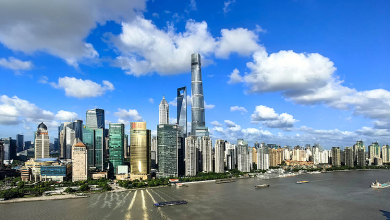As Malaysia offers visa-free travel to Chinese tourists, will domestic operators see ‘benefit’?
[ad_1]
In 2019, more than 3.1 million Chinese visited Malaysia, the third-largest group behind Singapore and Indonesia, according to data from government tourism authority Tourism Malaysia.
“It’s going to contribute a lot in traffic both ways, including for people in Malaysia to visit China as well,” said John Gong, a China Forum expert and professor at China’s University of International Business and Economics.
Tourism is a significant contributor to national coffers, with the sector and related industries pulling in 251.5 billion ringgit (US$53.7 billion) or 14 per cent of Malaysia’s gross national product in 2022, according to data from the department of statistics.
Malaysian economy ‘no longer in crisis’ as return of tourists buoys growth
Malaysian economy ‘no longer in crisis’ as return of tourists buoys growth
But the prospect of the return of Chinese tourists en masse, may not translate into direct benefits for local tour operators, who end up competing with larger agencies from China that organise prearranged trips for their clients.
Before the pandemic, Chinese tour groups booked everything in China from island-hopping to golfing holidays, on trips almost always book ended by big buffet spreads prepared by major seafood restaurants and hotels.
Freelance tour coordinator Marilyn Lai said those same major players are likely to benefit first from visa-free arrangements, while the rest of the industry can only hope that the expected deluge of Chinese tourists will also bring in more intrepid travellers keen on different experiences.
“The only way for tour operators to benefit from this is if they have customised tour packages for a particular niche market,” said Lai, a 19-year tour industry veteran from Sabah state, a popular destination for Chinese tourists.

Those include activities favoured by free and independent travellers, Lai said, which typically cover more adventurous pursuits such as white water rafting, jungle treks and other nature trips.
Malaysia’s interior ministry said on Monday it would review the scheme “after one year to evaluate the return of investment to the country”.
It also pledged to review “the effectiveness of the initiatives and security risks from the immigration facilities provided”.
Malaysian authorities have been on high alert after hundreds of its citizens were duped by fake job offers to end up working in scam centres in Myanmar and as far as Peru, mostly operated by Chinese gangs.
From love scams to fake jobs, Asia-Pacific is new ‘ground zero’ for cybercrime
From love scams to fake jobs, Asia-Pacific is new ‘ground zero’ for cybercrime
Malaysian police said in October they had detained 1,160 scam suspects – including 300 Chinese nationals – in raids over the first nine months of this year on 148 “call centres” running scam operations, local newswire Bernama reported.
The ministry said Malaysia would also grant 30-day multiple entry visas to all tourists, and extend social visit passes by 12 months for international students from 23 nations to further their studies, travel or work in approved sectors.
Searches for Malaysia travel surged on Chinese travel platforms after Anwar’s announcement, with travel apps recording up to double the traffic for travel arrangements to Malaysia, Chinese state-owned news portal Global Times said on Monday.
Strict Covid-19 curbs in both Malaysia and China lowered inbound Chinese arrivals to the Southeast Asian nation to 400,000 in 2020 and to just under 8,000 visitors in 2021.
Chinese arrivals have since returned to 500,000 over the first half of 2023, but remained at just a third of the total number of Chinese tourists in the same period in 2019.
The removal of visa requirements to travel between the two countries also presents an opportunity for Malaysian businesses to build their relations inside China, especially through the Belt and Road Initiative projects, said Ong Tee Keat, chairman of the Centre for New Inclusive Asia think tank.
Malaysia was among the early adopters of the Belt and Road Initiative, signing a deal to build a US$1.5 billion rail project on the peninsula’s east coast. China Communications Construction has the contract to build it and the line is scheduled to begin operations in early 2027.
“The level of participation by our entrepreneurs here in the Belt and Road Initiative is still relatively low,” said Ong, a former Malaysian minister.
“We need to spearhead more efforts proactively in forging collaboration with China, particularly in green sustainable development … alongside the digital economy.”
[ad_2]
Source link






